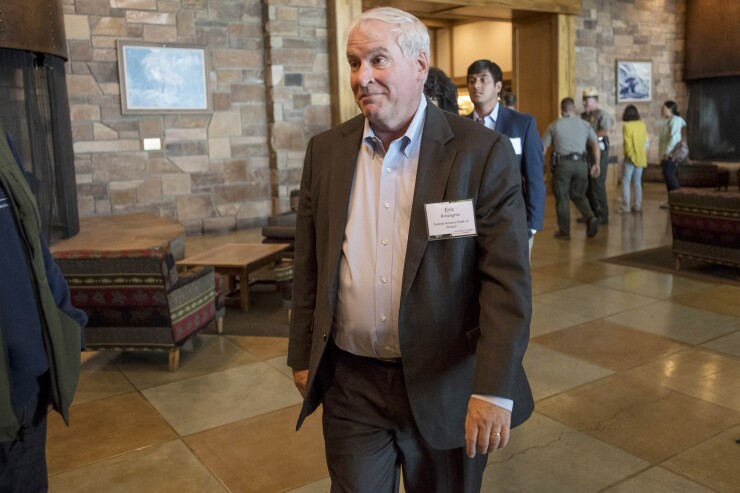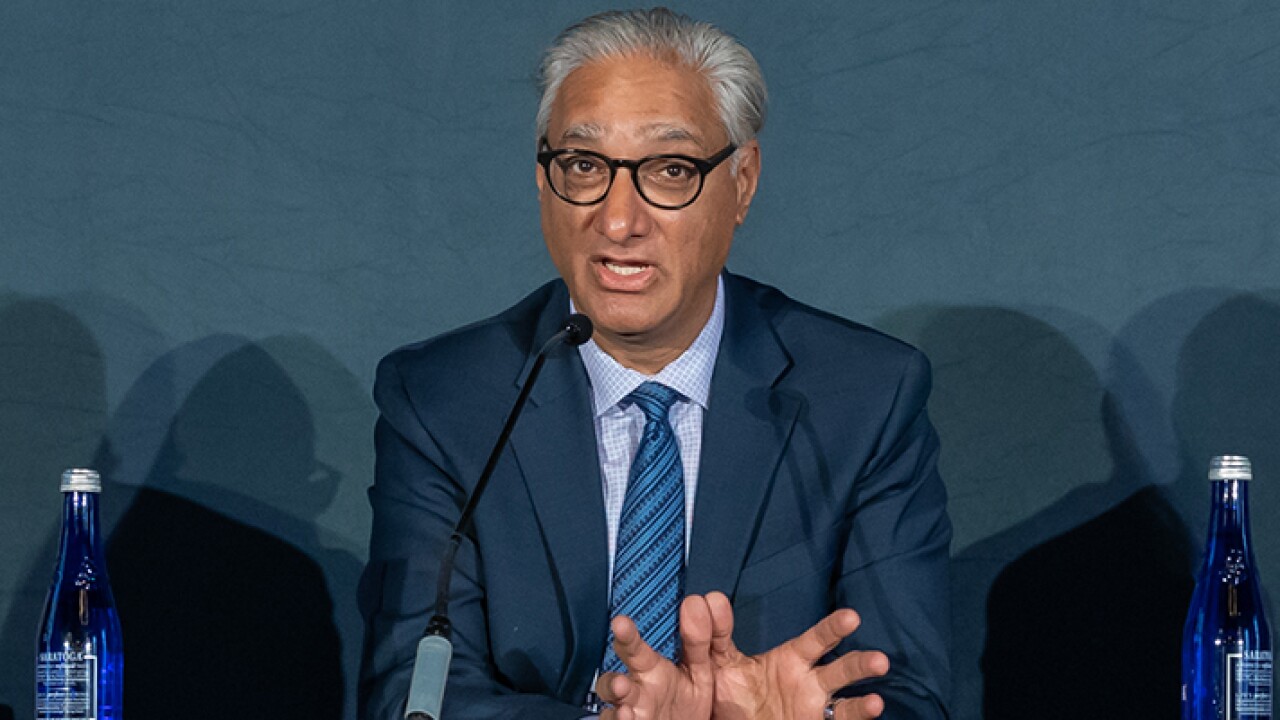While trade policy poses a risk to U.S. economic growth, Federal Reserve Bank of Boston President Eric Rosengren said Friday, he would support faster rate hikes if risks are avoided and the economy gets stronger.
“Assuming these near term risks are avoided, my own forecast is somewhat stronger than the SEP forecast,” Rosengren told the Greater Boston Chamber of Commerce, according to prepared remarks release by the Fed. “Of course, I would support a somewhat faster increase in the federal funds rates if that stronger growth does indeed occur.”

Rosengren said his “forecast is somewhat stronger in terms of unemployment rates and inflation outcomes than the [Summary of Economic Projections] forecast, which is why I am in favor of somewhat more tightening than the median [Federal Open Market Committee] member.”
The expected outcome is not assured, as risks exist. “Disruptive international trade actions or increasing the risk of a boom-bust economy by overextending could, in my view, prove problematic for the economy,” he said. “And the status of fiscal and monetary ‘buffers’ call into question their ability to work against a shock or downturn.”
With gross domestic product expected to be fairly strong, the unemployment level seen falling below 4%, and inflation nearing the Fed’s 2% target by the end of the year — with two more 25-basis-point rate increases factored in.
“My own views are that labor markets may tighten more than the median SEP forecast suggests, and that inflation is likely to increase a bit more than the current median forecast by FOMC participants,” Rosengren noted. “Therefore, I expect somewhat more tightening may end up being needed than is currently reflected in the projected median for the federal funds rate.”
Forecasts “often prove imperfect,” since assumptions that are hard to predict are made, he said.
Among the risks to the forecast, Rosengren noted, are tariffs, oil production and foreign economies’ monetary policy. “Many of these questions require the forecasting of political outcomes rather than underlying economic relationships — and this is not an area of comparative advantage for economists.”
Trade and the economy overheating are the short-term concerns, while “reduced capacity of both fiscal and monetary policy to act against downturns” remain the long-term challenges.
While exports remain important to the U.S., he suggested, “It would take a significantly broader set of trade actions than those reported to date to materially reduce the roughly $2.4 trillion in annual U.S. exports. Still, spillover effects are possible, beyond just the industries where exports could be affected by possible trade barriers.”
Federal debt as a percentage of GDP poses a long-term risk. “My concern is this: by using up so much fiscal capacity now — by which I mean the ability to lower tax rates or boost federal spending to offset economic weakness — the country risks not having sufficient fiscal capacity in the future when it might be needed,” Rosengren said. “And this lack of fiscal capacity would be particularly troubling if monetary policy could not aggressively offset adverse shocks.”
And, with the forecast for long-run fed funds of 2.9%, and the standard lowering of rates in a recession generally viewed as 5 percentage points, Rosengren said, “it is quite likely that interest rates would reach zero again in a downturn.”












